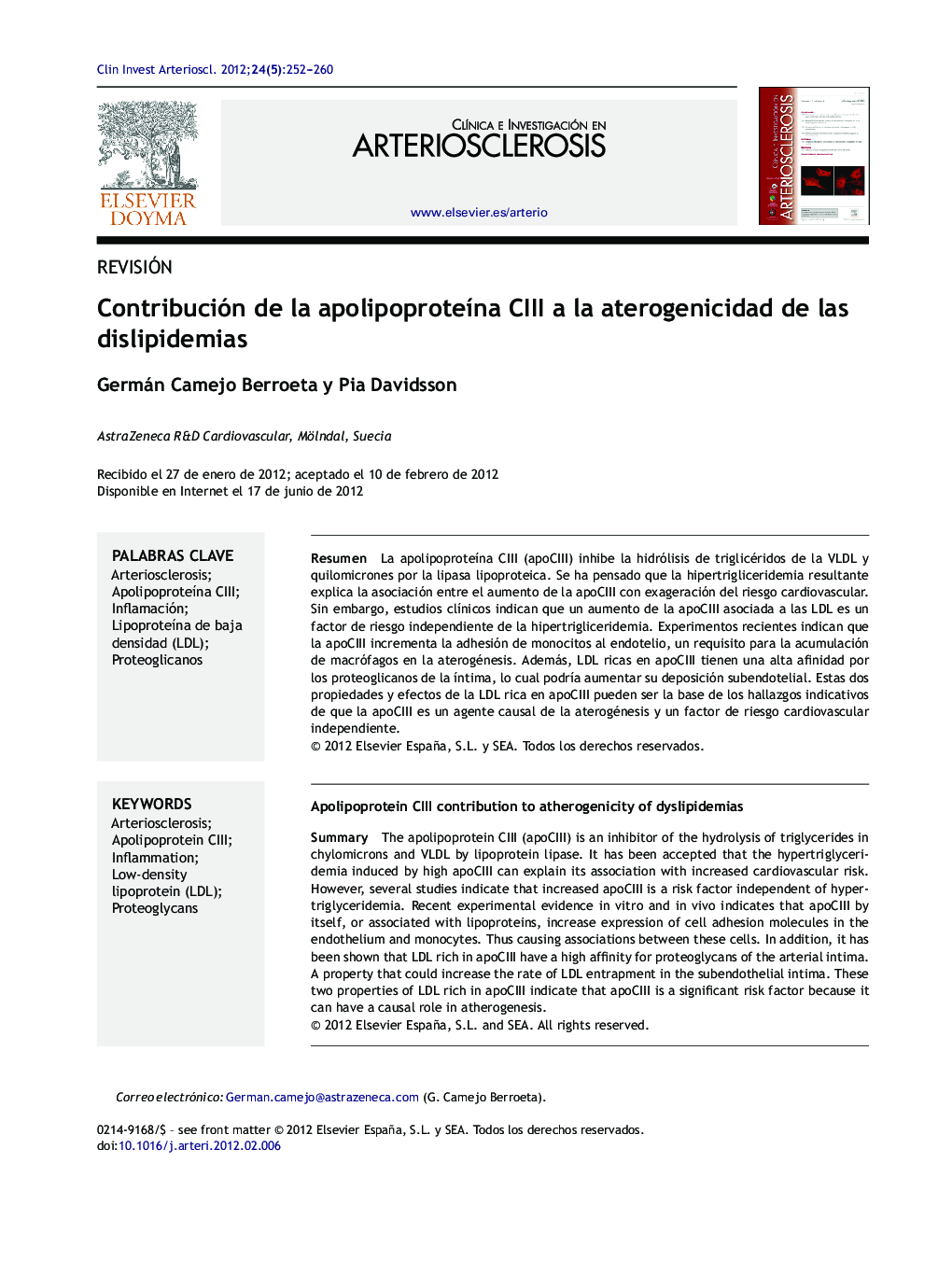| Article ID | Journal | Published Year | Pages | File Type |
|---|---|---|---|---|
| 2839648 | Clínica e Investigación en Arteriosclerosis | 2012 | 9 Pages |
Abstract
The apolipoprotein CIII (apoCIII) is an inhibitor of the hydrolysis of triglycerides in chylomicrons and VLDL by lipoprotein lipase. It has been accepted that the hypertriglyceridemia induced by high apoCIII can explain its association with increased cardiovascular risk. However, several studies indicate that increased apoCIII is a risk factor independent of hypertriglyceridemia. Recent experimental evidence in vitro and in vivo indicates that apoCIII by itself, or associated with lipoproteins, increase expression of cell adhesion molecules in the endothelium and monocytes. Thus causing associations between these cells. In addition, it has been shown that LDL rich in apoCIII have a high affinity for proteoglycans of the arterial intima. A property that could increase the rate of LDL entrapment in the subendothelial intima. These two properties of LDL rich in apoCIII indicate that apoCIII is a significant risk factor because it can have a causal role in atherogenesis.
Keywords
Related Topics
Life Sciences
Biochemistry, Genetics and Molecular Biology
Physiology
Authors
Germán Camejo Berroeta, Pia Davidsson,
